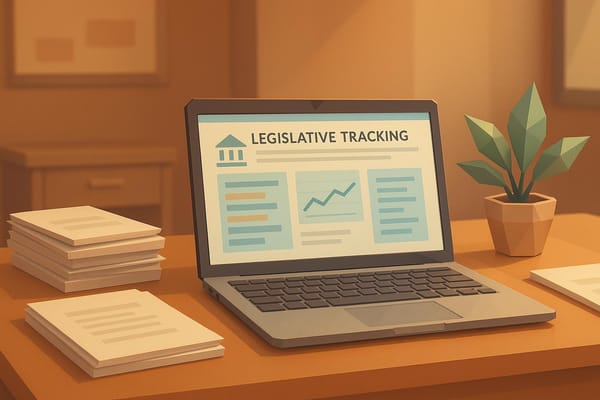HB32: Semi-Monthly Pay for Alabama Educators

House Bill 32 (HB32) proposes a shift to a semi-monthly pay schedule, aiming to streamline and potentially improve payroll processes for educators across the state. This proposed legislation has generated considerable discussion, highlighting its importance for both employees and local education boards. This blog post will delve into the specifics of HB32, exploring its key provisions, potential impacts, and the process for local boards to opt out, providing a comprehensive overview of this important bill.
Mandatory Semi-Monthly Pay Structure
HB32, if enacted, will mandate that beginning August 1, 2026, all local boards of education in Alabama must implement a semi-monthly pay schedule for their employees. This means employees will receive two paychecks per month, a significant change for many who may currently be on a monthly payroll system. According to the bill, these payments will be made “one payday in arrears”, meaning the payment covers the prior pay period. The legislation stipulates that salary payments will generally be made on the first and sixteenth day of each month, ensuring a consistent and predictable pay schedule for school employees. This shift is designed to provide more frequent payments and help improve the financial planning of school employees.
The bill specifies that payments should occur on the 1st and 16th of each month with minor exceptions. As stated in the bill “salary payments based on the semi-monthly plan shall be made on the first and sixteenth day of each month”. This will apply to all employees of local boards of education with the goal of providing more frequent payments to school employees.
HB32 also acknowledges that dates will occasionally fall on weekends or holidays and clearly provides solutions. If the 1st or 16th day of the month falls on a Saturday, Sunday, or holiday, the payment will be moved to the last preceding workday. There is an exception for payments on October 1st. In that case, payments falling on a weekend or holiday will be moved to the next succeeding workday. This measure ensures that payments are received on time and that employees don’t have to wait an extended time period for their paychecks due to calendar issues.
Opt-Out Provision for Local Boards
While HB32 aims to standardize pay schedules across the state, it also recognizes that a one-size-fits-all approach may not suit every local board of education. To address this, the bill includes an opt-out provision. A local board can choose to forgo the semi-monthly payment plan by passing a written board resolution. This flexibility allows boards to maintain existing payment schedules if they believe it aligns better with their operational needs. The bill specifies, “A local board of education may opt out of the provisions of this section by written board resolution.” This measure aims to balance the desire for statewide consistency with the practical needs of local school systems.
The process for opting out is clearly defined in the bill. After passing the resolution, the board is required to file it with the State Superintendent of Education. To ensure prompt action, this filing must occur within 60 days of the resolution’s passage. This timeline ensures that the state is aware of which districts will adhere to the semi-monthly schedule and which will not. This creates a clear administrative process and a manageable timeframe for local boards.
This provision reflects a pragmatic approach by the Alabama legislature, acknowledging the diversity among local school systems. For a district with current system that is running smoothly, this measure allows them to maintain its existing operation. Also, it allows for a small district to keep its simplified payroll system in place. This is a clear acknowledgment that not all districts are the same.
Implementation and Oversight
HB32 includes provisions for how the semi-monthly pay system will be implemented across the state. It tasks the State Comptroller, the State Superintendent of Education, and the State Board of Education with developing policies to support the transition. These policies will ensure that all local boards of education have the necessary tools and guidelines to comply with the new payment requirements. The collaborative effort between state entities ensures that policies align with the stated purpose of the bill. These state bodies will establish parameters to ensure a smooth transition to the semi-monthly pay structure.
The bill mandates that state officials create “policies to implement the provisions of this section.” This will ensure a smooth and consistent transition for all districts across the state. This policy making will be critical in establishing best practices and establishing guidelines for districts. The state must ensure that the transition is not overly burdensome on the local districts. The creation of these policies will give local districts clarity on how they can adhere to the bill's requirements.
This collaborative effort between state bodies ensures that the legislative intent is realized and that all parties have the necessary guidance. The involvement of multiple state bodies will also allow for feedback and collaboration. The implementation policies must not only be effective but also equitable for all districts across the state of Alabama.
Protecting Employee Compensation
A crucial aspect of HB32 is its commitment to maintaining the current compensation levels of all school employees. The bill explicitly states that the shift to a semi-monthly pay plan “shall not reduce any employee's annual rate of compensation.” This provision provides an added layer of protection to employees, reassuring that their pay will not be negatively impacted by this change. The provision serves as a safeguard against any unintended adverse financial effects that the transition might cause.
By explicitly protecting employee compensation, the bill ensures that the primary focus of the change is to provide a more frequent pay schedule and streamline administrative processes, without negatively affecting employees' income. The bill makes it clear that the intention is to enhance payroll processes and increase the frequency of paychecks. In addition, this provision highlights the overall intent of the legislation, which is to improve the payment process for school employees.
This component of the bill is of the utmost importance as it ensures financial protection for educators across the state. The primary purpose of HB32 is to improve the efficiency of payments, and it will not come at the cost of educators paychecks. The statement reflects a desire to provide convenience while remaining equitable for teachers.
Effective Date of the Act
HB32 includes a specific timeline for its implementation. The act is set to become effective on July 1, 2025. This effective date provides local boards of education with ample time to prepare for the transition, whether they will adopt the semi-monthly pay schedule or opt out of it. The delayed effective date provides significant time for local boards to evaluate the impact and make the decision that best suits their district. This timeline also allows time for the state bodies to develop the necessary implementation policies and guidelines.
The nearly two-year timeframe from the bill's introduction and its effective date signals a commitment to a thoughtful and well-planned transition. The effective date of July 1, 2025, is not just an arbitrary date, but a strategic timeline for the changes to be implemented across the state. As the bill states “This act shall become effective on July 1, 2025.” This timeframe should reduce the burden on local districts and allow for seamless implementation.
This ample preparation time is crucial for local districts. This extended timeframe allows state and local education leaders to implement the necessary changes and address any potential challenges before the implementation date. Also this allows for educators to fully understand the impending change and prepare financially for the change.
Conclusion
In summary, HB32 represents a significant effort to standardize and improve the pay schedule for employees of local boards of education in Alabama. By mandating a semi-monthly pay schedule, unless local boards opt out, the bill aims to streamline payroll processes and provide employees with more frequent access to their earnings. The legislation also provides a framework that allows local boards the flexibility to choose the payment system that best suits their specific needs. The collaboration between the State Comptroller, the State Superintendent of Education, and the State Board of Education in developing implementation policies indicates a strategic and comprehensive approach to this change.
The bill’s commitment to protecting employee compensation ensures that the transition will not negatively affect the annual income of school employees. HB32 seeks to balance state uniformity with the needs of individual districts. The opt-out provision acknowledges the operational diversity of local boards while aiming for a more consistent payment standard across the state. The effective date of July 1, 2025, gives local boards and the state adequate time to prepare for these changes. The intent of the bill is to streamline and increase the frequency of payments to school employees in a way that allows the flexibility needed at the local level.
Ultimately, the successful implementation of HB32 will depend on the cooperation of state and local educational bodies. The bill holds potential to enhance financial management for school employees in Alabama. Moving forward, it will be crucial to monitor the transition and address any issues that may arise to guarantee that the intended goals of HB32 are effectively achieved. The success of HB32 will hinge on effective policy implementation and continuous evaluation of its impact.




